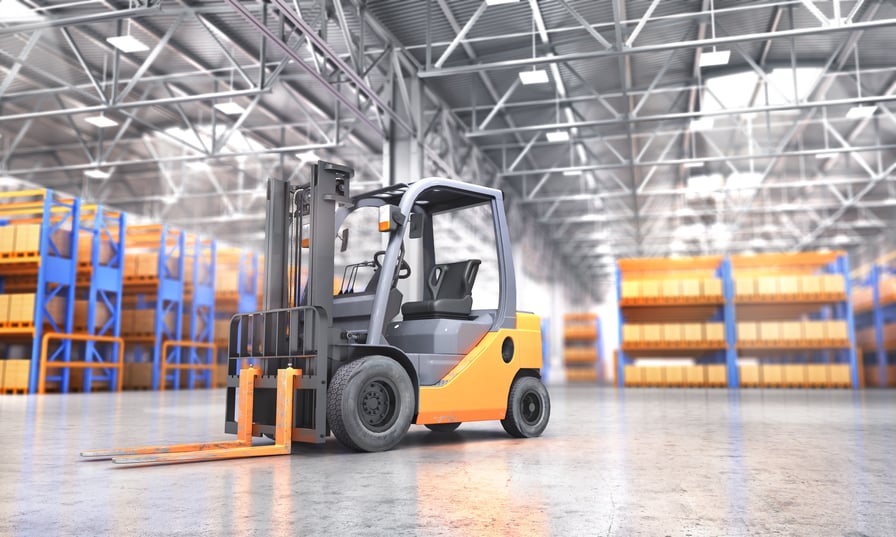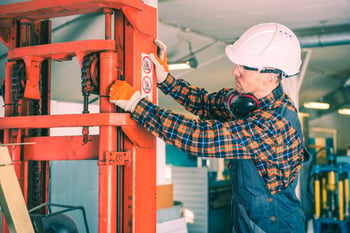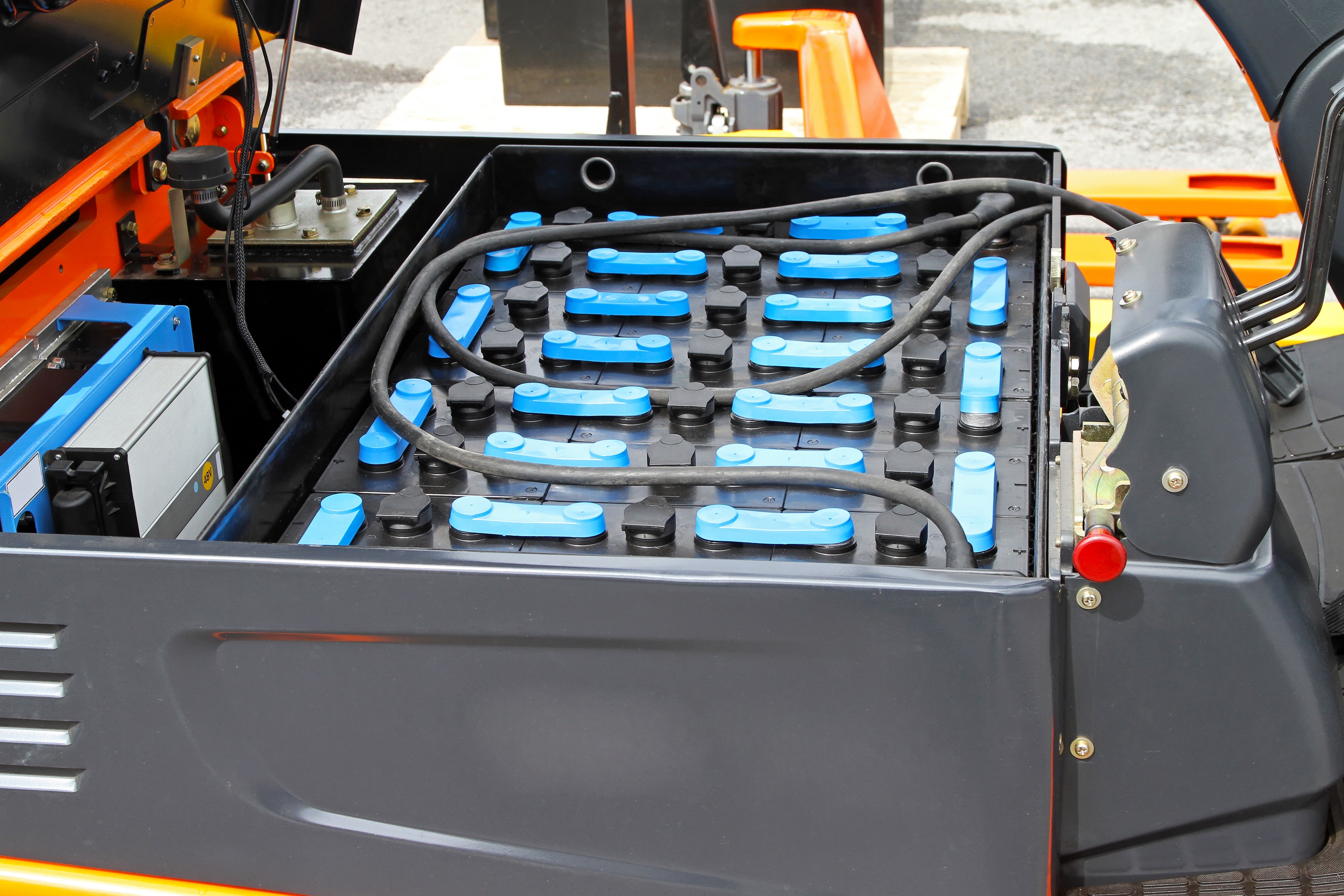
The purchase of new material handling equipment often requires detailed analysis to determine the best choice for any company. This is especially true when it comes to a decision on whether to buy electric or LP (liquefied petroleum) gas forklifts—but the best choice for you may depend as much on your industry and your operating environment as it does on your budget.
Here are nine main factors to consider when deciding between forklift types to outfit your fleet:
Fuel Cost
The day-to-day operating cost of an electric lift may be lower than gas lift operating costs because the electric lift doesn’t use fuel. However, the upfront purchase costs of electric lifts will typically be higher because of the capital required for purchasing batteries and chargers. Despite the investments in the power supply and the ongoing cost of electricity each month, odds are, you will still see your ROI sooner.
Maintenance
 Electric forklifts have fewer moving parts (no engine, transmission or radiator), which helps to minimize maintenance costs. Gas-driven lifts have many more moving parts, so they require more frequent maintenance. Gas-driven lifts & their many moving parts typically require more frequent maintenance. Both types of forklifts must be maintained properly to deliver peak performance, so be sure to factor the costs of ongoing maintenance into your budget, regardless of the fuel choice you ultimately make.
Electric forklifts have fewer moving parts (no engine, transmission or radiator), which helps to minimize maintenance costs. Gas-driven lifts have many more moving parts, so they require more frequent maintenance. Gas-driven lifts & their many moving parts typically require more frequent maintenance. Both types of forklifts must be maintained properly to deliver peak performance, so be sure to factor the costs of ongoing maintenance into your budget, regardless of the fuel choice you ultimately make.
Environment
For companies concerned about reducing their carbon footprint, electric forklifts are the clear winner. They are fume-free, don’t emit toxins, and they even help reduce noise pollution since they are much quieter than gas driven forklifts.
Forklifts that use LP are quieter and cleaner than diesel lifts, but gas lifts have a much more adverse effect on the environment than electric lifts.
Multiple Shifts
If your operation runs multiple shifts, you probably don’t have time to wait for an electric forklift to charge between shifts. You may be required to invest in multiple batteries, and chargers for each forklift, as well as hire employees, tasked specifically with cleaning, watering and changing out depleted batteries to ensure constant availability and uptime.
Filling the tank of an LP forklift takes only a few moments at the start of a shift, and most units can run continuously throughout a shift on a full tank. To maximize equipment availability in a multiple shift operation, LP gas lifts may be the better choice.
Indoor or Outdoor Use
If your operation only requires forklifts to operate indoors, an electric lift may be the best choice because of the clean, quiet operation. If you have appropriate tires and a storage area that is sheltered from inclement weather, an electric forklift remains a viable option for the outdoors.
However, under most circumstances, LP gas lifts are a better choice in an outdoor environment because they are engineered to stand up better to harsher environments.
Performance
Electric lifts may have limited run time before requiring recharging. Battery and charging technology has improved steadily in recent years, enabling increased run time over older units, but all battery-operated forklifts require periodic charging time.
LP gas lifts usually offer greater travel distance and operating time than electric units, and travel speeds and rates of acceleration are usually better with gas-operated forklifts than with electric models.
Productivity and Uptime
 Warehouse productivity is one of the key metrics for most supply chain professionals, so anything that adversely affects this result can raise questions about operating effectively. Electric forklifts are unavailable while charging, which can adversely affect uptime and productivity.
Warehouse productivity is one of the key metrics for most supply chain professionals, so anything that adversely affects this result can raise questions about operating effectively. Electric forklifts are unavailable while charging, which can adversely affect uptime and productivity.
It only takes a few minutes to swap out or refill an empty LP tank. Other than downtime to refill, gas lifts will have consistent power throughout a shift and operate at full capacity.
Space
Before deciding between an electric or gas forklift, be sure there is enough space in the facility for storing spare batteries and setting up a charging station. If space is at a premium, an LP forklift may be a better choice.
Residual Value
Whether your forklift has been fully depreciated, or you have a standard replacement cycle for your MHE, at some point you will upgrade your fleet to improve future productivity. Residual values will be important because it will help to defray the cost of upgrading your forklift.
Typically, LP forklifts have lower residual values than electric lifts because of the wear-and-tear on moving parts and the increased maintenance required to keep older units operating efficiently.
To Sum It Up
There’s no one right answer that fits every situation when it comes to choosing between electric and gas lifts, but the guide above will help you to evaluate the crucial factors for your environment and lead you to an ideal decision about whether to choose electric or LP gas lifts.
Regardless of the decision you make on fuel for your MHE equipment, proper service and maintenance are essential to ensuring top performance that helps optimize productivity and efficiency, keeping overall equipment costs low. Many companies find it difficult to manage complex maintenance schedules, so they rely on an outside service to keep their equipment running efficiently.
If you’re interested in learning more about MHE and why it pays to entrust your forklift maintenance to an experienced fleet management and MHE service provider like Kenco, download our free eBook “Why You Should Buy Kenco Material Handling Services” for more insight.



